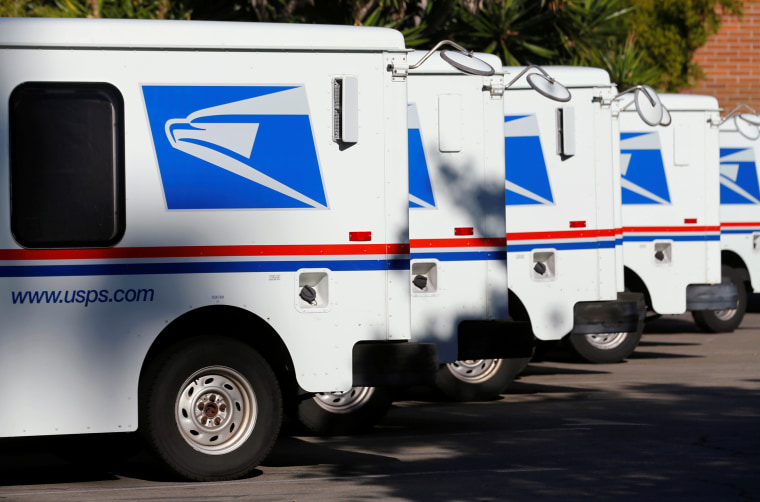The United States Constitution doesn't go into a lot of detail about specific benefits the federal government is supposed to provide to the citizenry -- the document tends to prefer generalities such as promoting "the general welfare" -- but Article I, Section 8 explicitly authorizes officials to "establish post offices."
In other words, as long as there's been a U.S. government, a domestic mail system has been a pillar of the American experience. It is also facing a precarious future, made worse by the pandemic, as the New York Times reported late last week.
Ravaged by the impact of the coronavirus pandemic, the United States Postal Service appealed to lawmakers on Thursday for an $89 billion lifeline, telling them that it could run out of cash by the end of September if Congress fails to act.... [T]he Postal Service is projecting a $13 billion revenue shortfall this fiscal year because of the pandemic and another $54 billion in losses over 10 years.
The article added that mail volume in the U.S. is "down by nearly a third compared with the same time last year and dropping quickly, as businesses drastically cut back on solicitations, advertisements and all kinds of letters that make up the bulk of the mail service's bottom line."
So, as federal policymakers ponder a series of economic rescues, the USPS will obviously be among the key beneficiaries, right?
Wrong. When Democrats tried to add USPS aid to the $2.2 trillion CARES Act last month, Donald Trump made clear he was prepared to reject the entire package if it included money to bail out the Postal Service. Asked about his apparent hostility toward the independent agency during a recent White House press briefing, the Republican offered a long, meandering, hard-to-follow diatribe, in which he seemed to argue that the USPS would be fine if it imposed higher rates on Amazon.com (a company Trump appears to hate because its owner, Jeff Bezos, also owns the Washington Post).
"[T]hey lose money every time they deliver a package for Amazon or these other Internet companies," the president said, adding, "If they'd raise the prices by actually a lot, then you'd find out that the Post Office could make money or break even. But they don't do that. And I'm trying to figure out why."
By way of an explanation, the Washington Post explained over the weekend:
Raising rates too much would lead private-sector competitors to develop their own cheaper methods to deliver packages, said Lori Rectanus, director of physical infrastructure at the Government Accountability Office. Even if a rate increase generates revenue, that money would be marginal to the total Postal Service debt, almost all of which comes from a congressional requirement to prepay pension and retiree health care costs for all employees, even those who haven't yet retired.
That last point is of particular interest. One of the reasons plaguing USPS finances is, as Sen. Brian Schatz (D-Hawaii) explained over the weekend, a Republican policy from 2006 that requires the Postal Service to pre-fund future pension obligations -- several decades into the future. An Institute for Policy Studies report last year added, "This burden applies to no other federal agency or private corporation."
If Trump doesn't want to rescue the Postal Service, could he at least consider lifting this pension regulation? It'd make more of a difference than trying to undermine his perceived foes at Amazon.com.
Postscript: It's worth noting that the problem is not limited to the White House: many congressional Republicans support privatizing the USPS out of existence, so they're happy to go along with the president's current posture.
